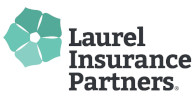
Insurance agents/advisors are prohibited by law from using aggressive or deceptive sales practices to lure seniors into buying insurance policies… but that doesn’t mean it doesn’t happen.
Below is a list of things insurance agents cannot do.
Illegal and Dishonest Tactics
During his years counseling Medicare beneficiaries, Mr. Riccardi saw that while the majority don’t break the rules, some salespeople use dishonest, misleading or illegal sales tactics. Below is a list of things insurance agents cannot do.
Cold Calling
Agents cannot go door-to-door or call you at home, unless you’ve given them prior permission to do so.
Official Medicare Sales Representatives
Be wary of any salesperson who says that he/she is a Medicare representative. Medicare does not send “representatives” to solicit your business. Private insurance companies sell Medigap and Medicare Advantage and are not official representatives or endorsed by Medicare.
Marketing in Care or Educational Settings
Medicare products cannot be marketed in places where health care is delivered (such as a doctor’s office, clinic, or pharmacy counter) or at an educational event. Although insurance agents can participate in an event, they cannot directly enroll you in a plan at that event.
Free Lunches
Federal regulations prohibit offers of free meals for listening to a sales presentation or for signing up in a particular plan. Gifts can’t have a value of more than $15.
Overselling
Federal regulations prohibit selling additional insurance products during sales or marketing presentations.For example, if a senior requests information on Medigap, an insurance agent can’t recommend a Medicare Advantage plan instead.
Things to keep in mind:
- Medicare does not have official sales representatives: Don’t believe a salesperson who claims to be a Medicare representative. Medicare does not send “representatives” to solicit your business.
- Unsolicited sales calls are prohibited: Federal regulations prohibit unsolicited telephone calls, door- to-door visits, emails and other forms of sales without your permission. If you have not requested that someone contact you it may be a scam.
- Guard your personal information: Never give out personal information such as your Social Security number, bank account numbers, or credit card information over the telephone. Verify that the person you are dealing with has proper authority to act on behalf of the plan before you provide your Medicare number. Keep a record of who you speak with and the information that you provide to that person.
- Beware of cross-selling: Cross-selling occurs when a salesperson approaches you for one purpose but then tries to sell you something else. This could lead to an unplanned purchase of a product that may not be in your best interest. Salespeople may not market health care–related products (such as annuities, life insurance, etc.) during a Medicare Advantage or Part D sales activity.
- Take your time: Don’t feel pressured to make a quick decision. Be sure that you understand the details of a plan before you enroll. Verify copayment amounts and whether your medical providers participate in the plan that you are considering.
- You don’t have to make a change: If you are satisfied that your current plan will meet your needs for the coming year, you don’t need to change plans. Confirm the details of your current plan before making a switch.
Any Questions, Call us at
Toll Free: (855) 664-5660
Office: (828) 513-5045
If you want help planning your own Medicare supplement plan in Asheville, NC or Greenville, SC – give us a call!
